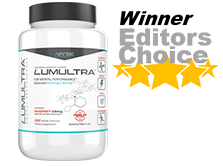Oftentimes customers will try out a new cognitive supplement and be dissatisfied with their purchase, so they unleash their anger by cleverly typing up a nasty review online. Once in a while, these reviews will include a comment along the lines of “Do not buy this product! It does not work and the effect is just a placebo!”
Since we see this more often than we would like to, it becomes frustrating to see how many people have grown ignorant to the power of the placebo effect. If you’re unaware about the placebo effect and would like to learn about it, keep reading!
What is the placebo effect?
The placebo effect or the placebo response is an astonishing phenomenon where fake or inactive substances such as sugar pills, water, or saline solutions ameliorate the user’s condition simply out of belief that it will help.
Here’s an example: so you have a headache and ask your mother for some Tylenol. Instead of giving you an actual pill of Tylenol, however, she gives you a sugar pill that looks exactly the same. You take it and 20 minutes later you feel much better. Why? Well because you assumed the pill was Tylenol and believed that it would work to get rid of your headache.
Although commonly associated with substances, the placebo effect can also take place completely drug-free. For example, sometimes going to a healer can bring out positive reactions such as stress reduction and a feeling of ease.
What do you mean by “power of placebo effect”?
While the placebo effect was first noticed in 1700’s, researchers didn’t begin proper research to understand the exact mechanisms behind it until the mid-1950’s. In 1955, for instance, anesthesiologist Henry K. Beecher published a paper entitled “The Powerful Placebo” where he concluded that a whopping 32% of patients responded to a placebo.
Although the placebo effect is strange and a difficult case to crack, we know one thing for sure: it works! Even when you know about the placebo response, it can still affect you just as much.
Are there any studies to back up this claim?
Yes! Plenty of studies have been conducted to test the trueness of this phenomenon. Here’s two of them, just to give you a taste:
- The placebo effect can increase your test scores
- A study by Ulrich W. Weger and Stephen Loughnan in 2002 featured 40 undergraduate students who took a 20-question basic knowledge test. Before the test began, 20 of the students were told that before each question came up, the correct answer would flash onto the screen. They were told that it happened too quickly for them to actually see it but that their brains would surely register it. So guess what happened? The students placed under the placebo condition scored significantly better than those who weren’t told anything.
- The placebo effect and depression
- In the past decade, antidepressant medications in the U.S. have been given out like free beauty product samples at the mall. Since they appear to work, symptoms of depression have improved in users. However, Irving Kirsch came out with a study in 2014 where he shows that sugar pills have the ability to do the exact same thing without causing negative side effects.
So next time you doubt a cognitive enhancer supplement, just remember that you can completely rely on the placebo effect! Just kidding…but seriously.
